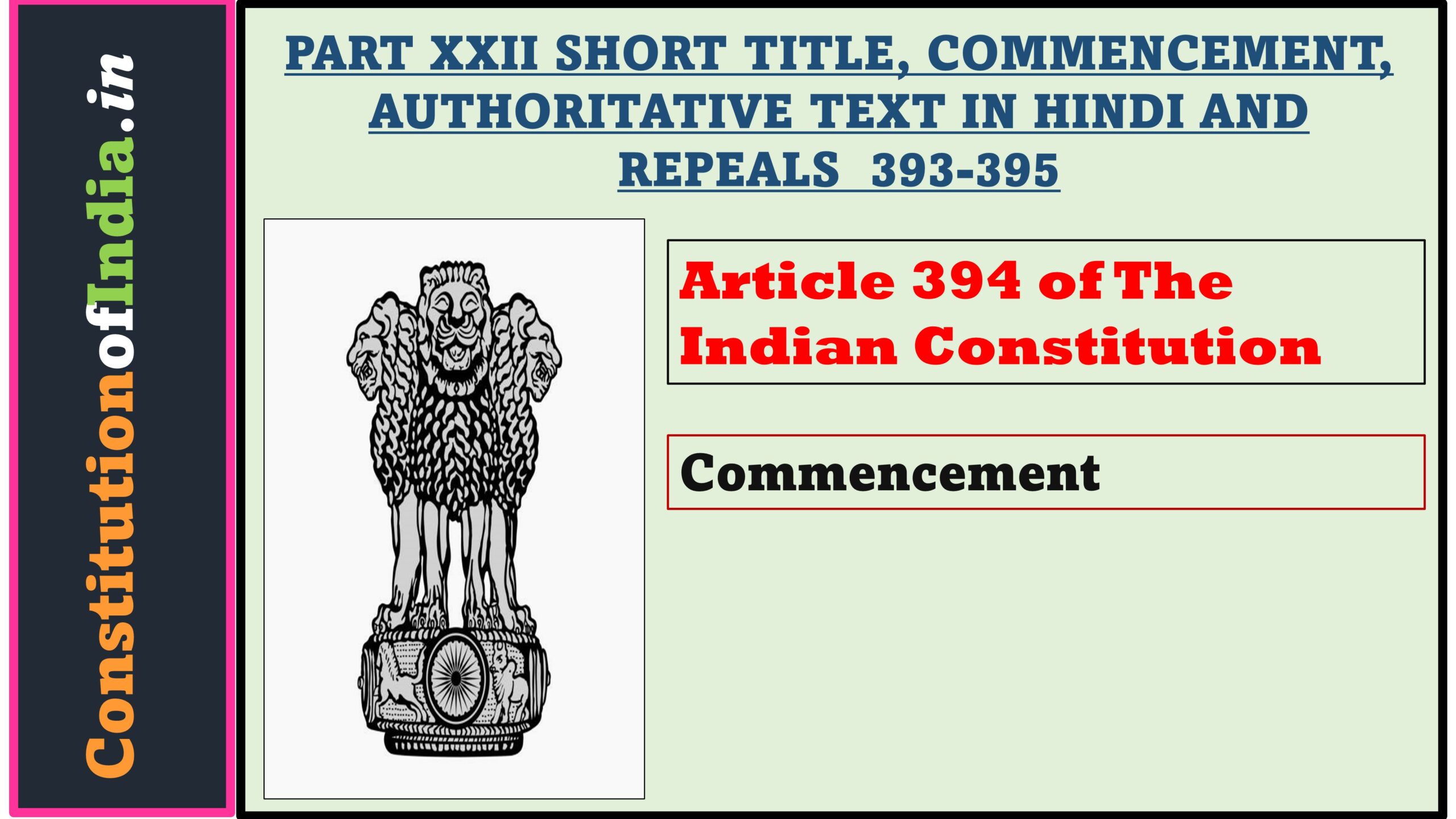Article 394 of Indian Constitution: Commencement.

Article 394 Commencement – Constitution Of India.
This article and articles 5, 6, 7, 8, 9, 60, 324, 366, 367, 379, 380, 388, 391, 392 and 393 shall come into force at once, and the remaining provisions of this Constitution shall come into force on the twenty-sixth day of January, 1950, which day is referred to in this Constitution as the commencement of this Constitution.
Summary
The mentioned articles, including Article 393, along with Articles 5, 6, 7, 8, 9, 60, 324, 366, 367, 379, 380, 388, 391, and 392, are set to be immediately effective in the Indian Constitution. These articles contain specific provisions that pertain to various aspects of governance and rights. The remaining provisions of the Constitution will come into force on January 26, 1950, which is referred to as the commencement of the Constitution. This significant date marks the establishment of India as a fully sovereign republic.
Article 394A
(1) The President shall cause to be published under his authority,—
(a) the translation of this Constitution in the Hindi language, signed by the members of the Constituent Assembly, with such modifications as may be necessary to bring it in conformity with the language, style and terminology adopted in the authoritative texts of Central Acts in the Hindi language, and incorporating therein all the amendments of this Constitution made before such publication; and
(b) the translation in the Hindi language of every amendment of this Constitution made in the English language.
(2) The translation of this Constitution and of every amendment thereof published under clause (1) shall be construed to have the same meaning as the original thereof and if any difficulty arises in so construing any part of such translation, the President shall cause the same to be revised suitably.
(3) The translation of this Constitution and of every amendment thereof published under this article shall be deemed to be, for all purposes, the authoritative text thereof in the Hindi language.]